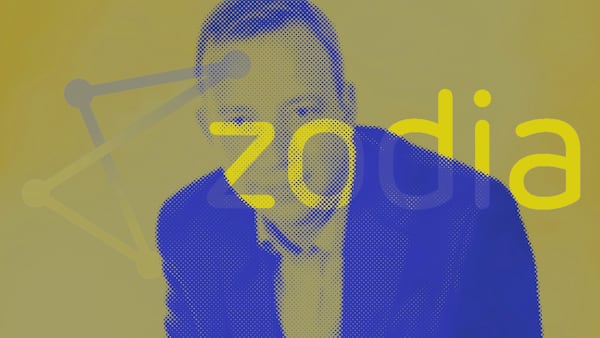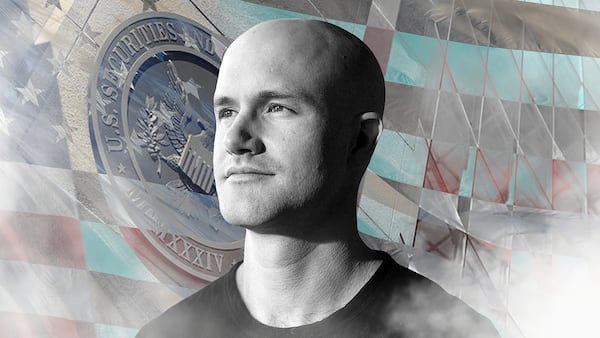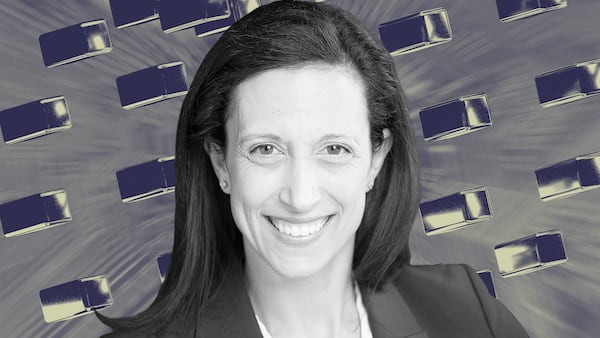Nicolas Bertrand, CEO of Nomura’s crypto custody venture Komainu, said he is not worried about firms like Deutsche Bank eating his lunch, despite the German giant and swathes of other traditional finance rivals wading into digital assets in recent weeks.
“It’s more competition,” Bertrand, whose business Komainu is a portfolio company of Nomura’s digital asset subsidiary Laser Digital, told DL News. “But we need competition and choice. If you want a dynamic industry, you need a diversity of offerings with many actors competing.”
Bertrand’s long-termist attitude is indicative of where the sector is right now: in the early stages of what could be a dramatic transition.
As crypto-native companies like Binance and Coinbase struggle in the face of regulatory scrutiny, TradFi firms are stepping in. Besides Deutsche Bank, Citadel Securities, Charles Schwab and Fidelity’s crypto exchange EDX Markets went live on 20 June. BlackRock filed to launch a Bitcoin exchange-traded fund the previous week.
NOW READ: Zodia Custody CEO on leaving Bitstamp, expansion plans, and what clients ask during a crypto winter
But despite the land grab, the burgeoning ecosystem of TradFi-crypto crossover ventures has not yet reached the sort of critical mass that Bertrand would like.
“To make a market you need two people to trade,” he said. “Expand that concept and the more firms we attract as an industry, the bigger the pie. There will be more business thanks to [the new entrants].”
That being said, Bertrand is reluctant to define TradFi firms piling into crypto as a land grab.
“I would position [the influx of TradFi firms] as a ‘land grab’ if I look in the short term. But if I look at the medium-to-long term, it’s definitely not a land grab,” Bertrand said, emphasising how young the crypto ecosystem is.
“We are at a point where 90% or more of the volumes in digital assets are in cryptocurrencies. This is going to shift. People are already thinking about the next steps, they are already thinking about security tokens, NFTs and other things. There will be a lot of innovation happening in the next few years.”
A self-proclaimed analytical thinker, Bertrand took the helm at Komainu — a joint venture between Japanese banking giant Nomura, asset manager CoinShares and digital wallet provider Ledger — in September after a two-decade career in finance.
Most recently he was head of derivatives markets and commodities at Borsa Italiana, the Italian stock exchange. Before that, he spent nearly 10 years as head of equities and derivatives at the London Stock Exchange.
Since he joined, Komainu has launched a collateral management system called Connect, which allows institutional users to keep their crypto with the custodian while using those funds to trade on the exchange.
OKX was announced as its first client in April, and Bertrand said more are in the pipe. They range from exchanges, liquidity providers and broker-dealers, but the deals are not yet over the line.
DeFi doesn’t like middlemen
Crypto backers have by-and-large pointed to TradFi interest like that of BlackRock as a sign of wider adoption, and by extension a good thing for the digital assets ecosystem at large.
But some proponents of DeFi are suspicious of the growing trend for intermediation, and think the men in suits are seeking to remake the crypto sector in the image of TradFi.
Austin Campbell, managing partner at blockchain consultancy Zero Knowledge Consulting, tweeted on 20 June that forcing people to use a centralised custodian, a clearing agency, and exchange services to access and trade crypto was “pants-on-head level stupid”, referring to the newly launched EDX Markets.
Bertrand, by contrast, suggests that critics may not appreciate the sort of risk management that finance firms need to carry out for large-scale transactions.
“Obviously if you manage £1,000 of digital assets, you can take the risk to custody it on an exchange or self-custody,” he said.
“But what if it is £1 million, or £1 billion, or £100billion? Then your risk is totally different. I’m taking an example of custody, but it will be the same in different elements of the digital assets infrastructure. It is a question of size and of having a proper risk analysis.”
Moreover, he said the trend for intermediation is not about making crypto work “exactly like TradFi”, but part of “an attempt to deal with the issues that we’ve gone through [such as the FTX scandal] with tools that have already been used effectively in the past.”
“It’s not like we are going back to square one. It is like any process of innovation that leverages the past to build the future, and this is precisely what we’re doing here.”
Operation Choke Point 2.0 a ‘short-term’ issue
Bertrand said he is not losing any sleep over the Securities and Exchange Commission’s crackdown on firms like Binance and Coinbase.
That is partly because it is already proving good for business. Komainu is based in London, and covers the European and Middle Eastern markets with a second office in Dubai.
“People are getting very interested in how they can custody their assets outside of the US,” he said. “This is a clear point and it plays to our strength.”
NOW READ: As Ether staking yields fall, protocols will have to get creative
But it is also because the crackdown – dubbed Operation Choke Point 2.0 by crypto natives — is a “short-term point,” he adds, suggesting that crypto regulation will likely shake out to a roughly balanced situation globally given time.
“I am more concerned with running our services flawlessly and preparing for the future,” Bertrand said. “We need to think several steps ahead, because our clients might not really know what they need themselves. These things take a long time to develop.”
“If you look long term, it is a non issue. This is a discovery process,” he said. ”It’s expected that there will be these debates. At some point that is going to end. Then, you are in front of a different map.”



